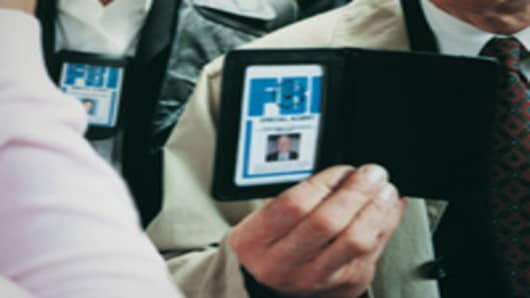The FBI raided the offices of one of the biggest names in Chinese reverse mergers Wednesday, according to Roddy Boyd at The Financial Investigator.
Investigators with the New York office of the Federal Bureau of Investigation raided the offices of Benjamin Wey’s New York Global Group yesterday, seizing documents and conducting interviews with employees.
According to one NYGG official, Wey’s Manhattan apartment was also raided. As of now, no charges have been filed and it was not clear what NYGG transactions were of interest to the FBI.
Attempts to contact NYGG and Wey were unsuccessful; a man answering the phone at the firm’s 40 Wall Street offices refused to give his name and would only reply, when questioned about the raid, “No one is here right now.” Follow-up calls were not answered. Jason Marshall, an official at Wey’s longtime publicists, said Wey and NYGG are no longer clients.
The raid was in many ways surprising in that legal repercussions from the collapse of the China reverse-merger boom had been minimal, save for some occasional de-listing activity from exchanges.
Chinese reverse-merger companies were popular a few years ago as investors looked for a way to buy into China's ongoing boom. Basically a Chinese company would purchase a defunct or dying American company ("merging" with it) and adopt its ticker symbol.
This method allowed these companies to sidestep the usual IPO vetting process. And that led to a lot of dubious accounting and business claims. A wave of lawsuits ensued and the popularity of Chinese reverse mergers took a plunge.
But, as TFI noted, there hasn't been a lot of overt law enforcement. Until now apparently, with the feds staging a raid.
This year-old Bloomberg story has a lot of background on Wey.
Wey now has offices on Wall Street and 60 employees in China, and says he accepts just 1 percent of the companies that seek him out. He says his clients don’t want to wait to list at home, and that a full-blown initial public offering in the U.S. is expensive and difficult. “The reason these companies do reverse mergers is not because it’s good or bad,” he says. “They have no alternative.”
From a 38th-floor conference room overlooking the silver and grey glints of lower Manhattan, he describes how a typical deal works: List via reverse merger with private funding from his company, New York Global Group; jump up to a name exchange such as Nasdaq; then raise more money with a secondary offering once the company has established credibility in the U.S.
Last year, he helped a Chinese manufacturer of wind turbine towers, CleanTech Innovations Inc., make its U.S. debut, and the shares are now trading on the Nasdaq. He says he assigns up to nine Chinese staff members to lead a company through seven to 11 months of due diligence before a U.S. listing. “There’s a lot of traps to try to avoid,” he says.
In 2007, the American Stock Exchange delisted a fertilizer company that he brought over, Bodisen Biotech Inc., for incomplete and inaccurate disclosures related to share ownership by officers as well as payments to Wey’s company. The move came after stories in the New York Post and MarketWatch. Wey blames journalists in league with short sellers.
The Oklahoma Department of Securities censured Wey in 2005 for not advising customers of the risks of stocks he sold and not disclosing consulting relationships with some of the companies. Wey agreed to a ban on working in the securities business in the state without admitting to the allegations.
Questions? Comments? Email us atNetNet@cnbc.com
Follow John on Twitter @ twitter.com/Carney
Follow NetNet on Twitter @ twitter.com/CNBCnetnet
Facebook us @ www.facebook.com/NetNetCNBC



